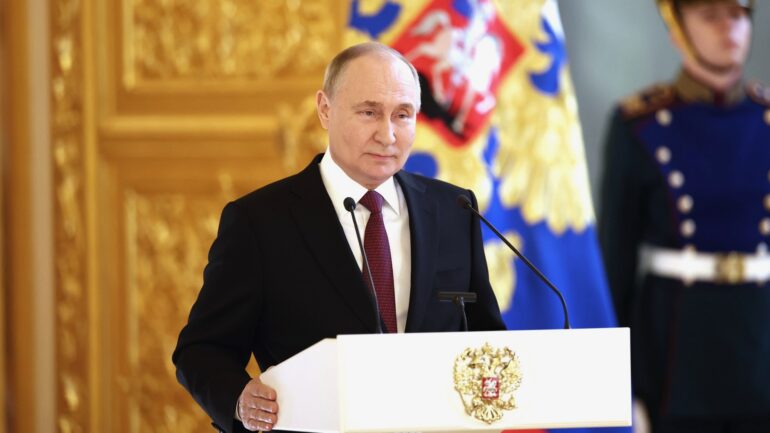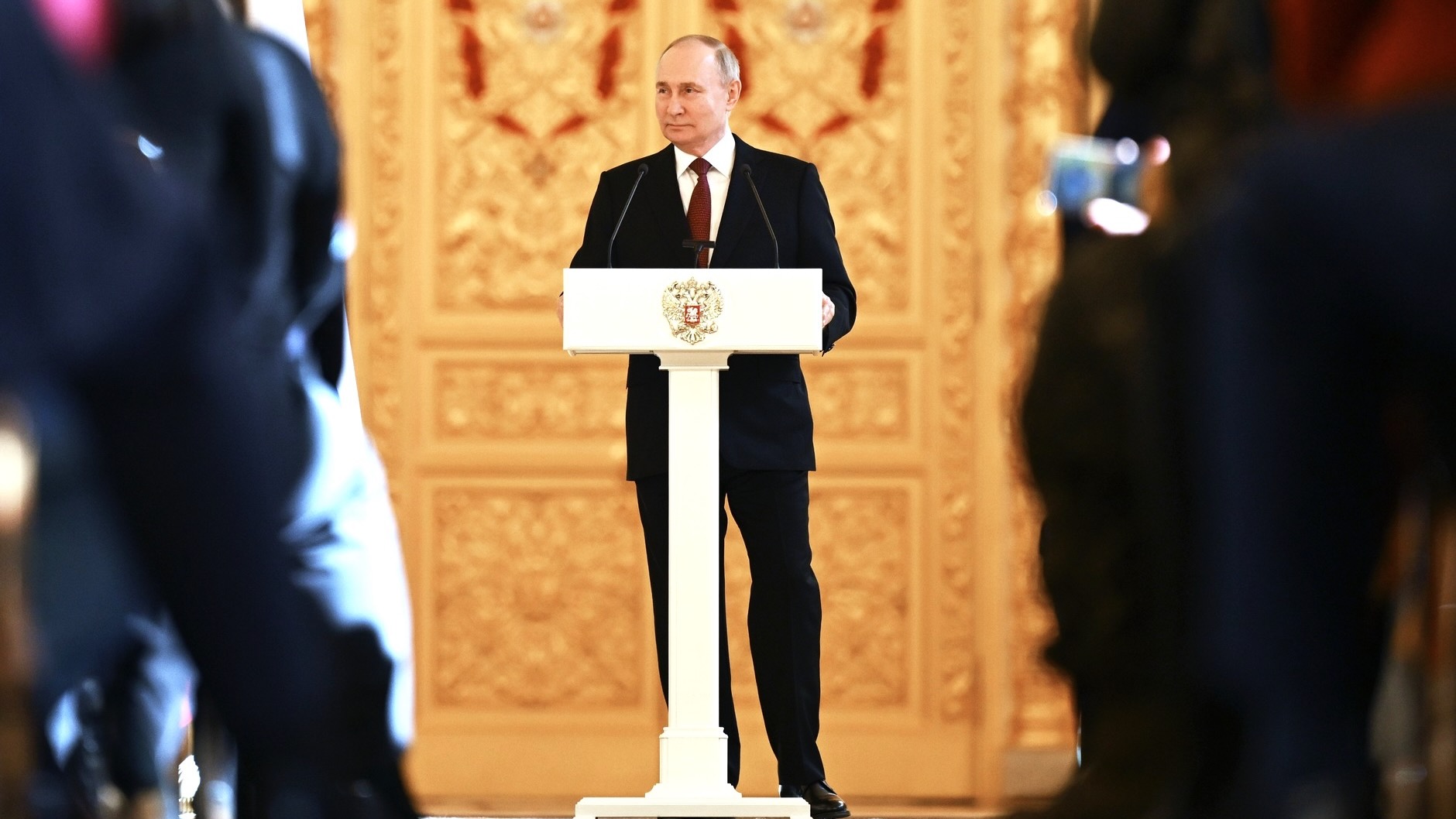Vladimir Putin’s fifth election win is a clear signal that Russia has fully transitioned into a dictatorship.
With the air of legitimacy granted to him by this election and recent battlefield successes such as the fall of Avdiivka, he will feel emboldened to continue his path of remaking Russia.
The twin crises of COVID-19 and the Russian invasion of Ukraine have allowed Putin to sidestep his 2024 problem, at least for the time being.
This problem is the selection of a successor, said Mikhail Zygar, of the Atlantic Council’s Eurasia Center think tank.
Before 2020, it was believed that Putin, constitutionally barred from re-election, would have to pass on the reins to a chosen successor, he said.
However, during the height of the pandemic in 2020, a referendum essentially wiped his previous terms of rule away, allowing him a clean slate to run for re-election, Zygar said.
Putin is now legally able to remain president until 2036 and there’s no reason to think he will not continue to rule Russia for the foreseeable future.

Vladimir Putin has changed Russia's constitution to let him rule until 2036. Photo credit: TASS/Valery Sharifulin
Rumours about Putin’s failing health were dispelled by CIA Director Bill Burns in 2022.
“There are lots of rumours about President Putin’s health and as far as we can tell, he’s entirely too healthy,” Burns told the Aspen Security Forum.
Questions over his succession plan remain, but for now, he is younger and healthier than the aging contenders for the White House.
It’s easy to think that Putin is winning.
His iron grip on power shows no signs of weakening, only strengthening. His enemies are dead; poisoned and beaten like Alexei Navalny or blown out of the sky like former mercenary leader Yevgeny Prigozhin.
The Institute for the Study of War in Washington, D.C., reports Putin’s military is advancing as Western military aid to Ukraine has stalled and his industry has survived sanctions.
According to independent polling by the Levada-Center, the Russian people overwhelmingly support him. Equally important, oil and gas revenues — the lifeblood of the Russian economy — remain flowing.
For years Putin and the siloviki, the men who rose with and now surround the president, have divvied up control of the state and its vast resources among themselves.
For years Putin has played his underlings against each other, deftly manoeuvring them into positions of power and removing them before they became too popular or powerful.
The war in Ukraine has changed things.
Russia under Putin has always been openly authoritarian, but the “Special Military Operation” launched by Russian forces in February 2022 has given Putin more power than ever.
Any dissent against the war is now criminalized. Over the past two years, there’s been a notable purge of cultural leaders, Zygar said.
“The heads of most of the important theatres and all the most important museums have been fired in what appeared to be an effort to prevent the cultural elite from protesting the war — or to pressure them into supporting it,” he said.
All this comes at an enormous cost to Russia and the countries around it that it brutalizes.
Putin has been willing to sacrifice the lives and livelihoods of hundreds of thousands of Russians, let alone the Ukrainian losses.
It is a cost he is more than willing to pay. He pulls strings, with no aim other than to preserve his power.
Vladimir Putin is a dictator.

